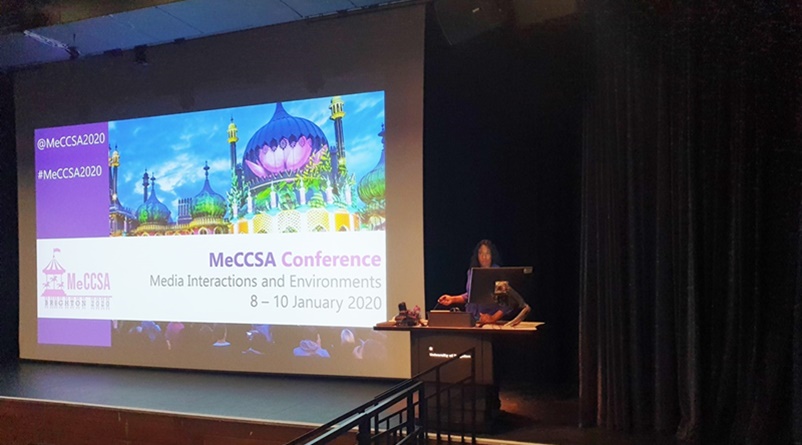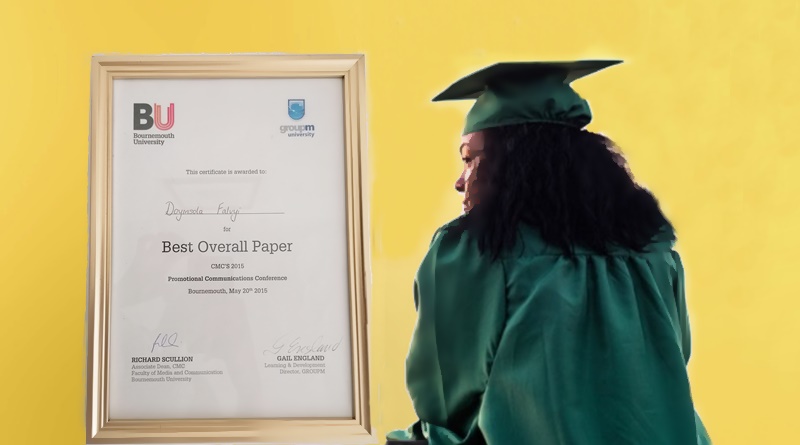As an avid watcher of reality TV shows, I’ve always been intrigued by the processes behind such shows and the inner workings behind the characters presented on screen. Many reality TV shows notably star Black women; however, their representations consistently play to negative stereotypes or tropes such as the “Angry Black Woman” or the “Hoochie”. This led me to want to investigate this further and delve deeper into these representations.
In my final year at Bournemouth University, I was delighted with the opportunity to choose three optional units. This enables students to widen their knowledge from their chosen degree and advance knowledge and skills they already possess. One of my chosen units was Media Inequality. The unit became the beacon of light within my studies and introduced me to what would become the conceptual framework of my dissertation, Black Feminist Thought.
With Media Inequality, I was introduced to critical race theory and the concept of whiteness. I had always had an awareness of whiteness society but had not explored scholarly work or thinking on it. Through Media Inequality I was able to conceptualise my experiences and put them into an academic space. Coursework assignments were also relevant to building up to the dissertation process, especially the Industry Report which required us to create a literature review based on racial issues within our industries. Without that assignment, I wouldn’t have been able to compile my dissertation literature review in such an efficient and clear way.
As I undertook a Humanities dissertation (based on argumentation and secondary, rather than primary research), it comprised review and critical analysis of literature alongside my own analysis of three different television shows (The Real Housewives of Atlanta, The Bachelorette and Married to Medicine). I was daunted at first by the level of reading I had to undertake but was heartened by the fact such strong scholars could be used to underpin and support my findings. My supervisor, Deborah provided me with the confidence to use my interest and love for shows with dominant Black female casts and analyse them using Black Feminist Theory. Books from Black Feminist scholars such as hooks, Hill Collins and Harris-Perry filled my backpack and my brain with new ideas.
My key research findings suggest that Black women are commodified within the domain of reality TV. Their bodies, beauty and emotions are sidelined and ultimately dismissed. Shows that featured Black women as “angry” or “sexual” were met with high ratings and recurring seasons. There is a proven appetite for the negative stereotypes of Black women and it seems that it will continue that way. Additionally, these representations are not new. They stem from the colonial era and are based on stereotypes such as the ‘Mammy’, Sapphire’ and the ‘Jezebel’. However, these stereotypes are reimagined and reproduced time after time to appeal to modern audiences.
Overall, my dissertation was an enriching experience. It helped me develop advanced skills in research and develop resilience and perseverance to reach my goal. The process also allowed me to read more and delve deeper into shows that I watch every day. I was able to uncover the injustices Black women face in society and how the media plays a large part in this process. I hope that universities will include these topics more in the curriculum to educate people on these issues so that one day things may change for the better.
Editor’s Note: Congratulations to my student Jasmine, who graduated with a First Class Honours Degree in Public Relations from Bournemouth University!
Thank you Deborah for being such an inspiration and a constant source of support! ☺️ https://t.co/WxkH5SlFoG
— Jasmine Aloma (@JasmineAlomaPR) February 11, 2020




